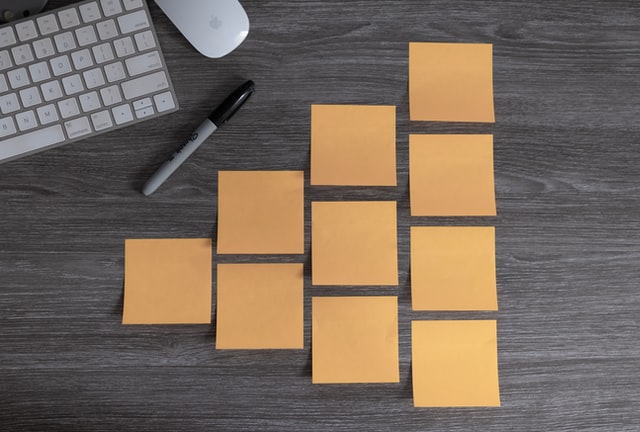It’s not magic. Students who achieve high grades simply employ necessary study skills and strategies. CUNY Professor Barry Zimmerman and George Mason University Professor Anastasia Kitsantas published their findings on academic achievement in Contemporary Educational Psychology. They discovered that high-achieving students used 13 learning strategies more frequently than lower-achieving students in a 1986 study. The master students’ secrets were revealed. Professor Paul Pintrich and his colleagues developed the Motivated Strategies for Learning Questionnaire a few years later.
It expanded on previous work and revealed a few additional critical study strategies. It was also the primary metric used in the Zimmerman and Kitsantas study.
For this post, I dug deep into the research to uncover the study strategies, procedures, and mindsets that distinguish these high achievers.
Here are 21 study tips from high performing students to help you get more out of your studies and improve your grades.
Study Tip #1: Focus on Gaining Mastery
Learning is crucial. It doesn’t end when you graduate from high school or college. You’ll be doing that for the rest of your life.
Learning is essential for life in a rapidly changing world. You get more powerful as you improve your ability to learn new things.
Try to understand the information as thoroughly as possible in each class. Encourage yourself to learn new things, even if they appear difficult at first.
Make it your goal to become a better learner than you are today.
Study Tip #2: Find the Importance For You
It is common for students to claim that they do not learn anything useful or important in school. That the subject matter is irrelevant.
Sure, it would be good if professors did a better job of emphasising the applicability of the things they teach. However, it is also easy to disregard anything they say as irrelevant to you. The finest pupils begin with the notion that there is some worth and then attempt to determine what it is.
Study Tip #3: Take Control of Your Education
It’s a difficult situation. You may feel as if you have no control at school. Naturally, as you go through the stages, you’ll have greater control over what you learn. You can also take initiative right now by deciding how you will study.
As a starting point, look through the teacher’s lesson plan and assignments. What you need to know is outlined in this handbook. Then make your own schedule to write it down. Taking charge of your education is the first step toward ruling your world. It’s yours.
Study Tip #4: Develop Your Skills and Boost Your Confidence.


Do you think you’ll be able to get all A’s? Do you believe you have the ability to master any subject? Believing in your own abilities motivates you to try new things.
If you’re often told how smart you are, your confidence may easily rise. However, such assurance is shaky. Easily misplaced. You must demonstrate your ability to gain lasting confidence.
So, choose one item to focus on. Learn it thoroughly. Take a look at your results. Rinse and repeat as needed. You’ll discover that you can learn anything new over time.
Study Tip #5: Think About What You Are Learning
Do you ever have the feeling that you’re supposed to take in everything your teachers say in one big gulp? And then you’re supposed to regurgitate for the test? You don’t have to consume your courses in this manner.
You can approach learning in the same way that a master chef does. Cut and dice the concepts. Chew them up in small pieces. Taste the flavours to see if they are to your liking. Consider a food you could prepare.
Is it too obscure? Oops. How about this…
Inquire about the concepts. Examine them carefully. Other options should be considered. Take a look at the ideas and see if you agree with them. Create your own thoughts based on the information provided.
Study Tips #6: Put It In Your Own Words.
Consider going over your notes again. They’re a total disaster. Sure, your chicken-scratches don’t help. But there’s a deeper issue at hand.
You don’t think the thoughts are flowing in a way that makes sense to you.
That’s OK. Because our minds are all diverse, there isn’t exactly one perfect approach to deliver concepts for everyone. You can, however, rearrange the thoughts in any way you like.
Rearrange your thoughts. Represent them in a way that makes sense to you.
Make a list of the main points and an outline. Arrange them on a table. Make a diagram of the situation. Make an idea map to help you visualise what you’re talking about. Take them and make them yours.
Study Tips #7: Grades Help Keeping Track With Your Studies.
There is no denying it. It’s satisfying to receive a high grade. It’s also entertaining to show your family and friends.
Grades are also an indication of how well you understand the content. Use these to determine how well you are studying.
Are you getting a low grade? Don’t give up. Also, don’t be irritated with the teacher. Change your approach to studying for your class. Examine your new scores to assess how well that is working. Is there no progress? Never, ever quit up. Try something different. And when you see them move up, rejoice!
Study Tips #8: Rehearse and Memorise
Assume you’ve been cast in the lead role in your school play. How would you write your lines?
You’d practise! You’d practise pronouncing them aloud. Without looking, I did it several times.
Treat your tests in the same manner. It’s more private (unless you have orals), but you’re still going on stage.
Make sense of what you’ve learned through your notes and readings. These will be your lines. As your “stage cues,” use topic headings or key words. Also, practise. Regardless of the test’s format.
Study Tips #9: Bring Your Scattered Ideas Together.


In class, you took notes. You studied the textbook. You did your research. However, the ideas are dispersed throughout your mind like a jigsaw puzzle that has yet to be completed.
It appears like you are missing a critical component of the puzzle.
Don’t be concerned. This is quite normal. You need to take another step in your studies, and it’s not difficult.
Compare and contrast the major themes from the various sources. Look for links between the notes and the book. Consider how they are related to one another. Solve the puzzle by putting the pieces together.
Study Tips #10: Follow Clues to Retrieve Forgotten Memories
You’ve done well in your studies.
You’re doing well on this quiz. But you can’t recall the solution to question #3. You were well aware of it. You can feel it on the tip of your tongue, but you can’t get it out.
What are you going to do?
Do not weep (or pry). There is a simple approach that can assist in locating that elusive memory.
Consider what else you know about the subject. Alternatively, imagine yourself returning to your study location. Use these associated memories as clues to trace down and flush out your target.
Study Tips #11: Determine Your Study Objectives.
The finest students do not simply accept their lecturers’ instructions. They study them over for a bit to make sure they understand what they’re saying.
Consider what you are supposed to be learning. Determine your goal. Also, don’t rely solely on the teacher. Set your own study objectives: What will you achieve?
Then go ahead and make it happen.
Study Tips #12: Double-Check Your Work. Make Sure you Understand Everything.
Quizzes and examinations are used by your teachers to assess your progress. But you don’t want to learn the same thing as the teacher. It’s better to know sooner rather than later so you have time to correct.
Check it out for yourself first.
Before the test, figure out what you don’t entirely understand. Also, double-check your work for accuracy (again) before submitting it.
Study Tips #13: Be a Turtle


In the classic adage, the tortoise wins the race by moving slowly and steadily. However, many students behave far more like the hare. Lounging, dozing, and standing still are all options. Then a quick burst of studying before the test.
Take the tortoise’s path. Take charge of your time. Continue to work steadily. Continue to do your homework. Review on a regular basis. Get into a routine to reduce your stress.
Study Tips #14: Find a Quiet Place
You’ve probably heard it a million times, haven’t you?
Find an area to study that is calm and free of distractions. Turn off the headphones, turn off the video, and log out of social media.
Multitasking is ineffective. Even millennials, contrary to what you may have heard or wish to think. (Hey, I’m just the messenger; don’t kill.)
Enter your personal space. Concentrate on a single task. You’ll get more done faster and feel better about your work.
Study Tips #15: Keep Going
Consider the following scenario: your school is trampled by a massive foot. And the new location is fantastic.
Your schoolwork is all fascinating. It covers exactly what you’re interested in. It’s difficult enough to keep you interested, but not so difficult that you want to give up. It’s totally ideal for you. You can’t get enough of it. Now get up! Sorry, but the dream has come to an end.
Good teachers strive to create juicy classes that you will enjoy, and ideally you will have some sweet moments. You must also persevere through the dull and tedious bits, the difficult parts, and the times when you simply feel sluggish no matter what. Perseverance is a necessary aspect of life.
Study Tips #16: Collaborate with a Friend
Not the friends who spend a lot of time babbling off subject.
When we converse with people, we learn a lot. Explain the lesson to a struggling classmate who requires assistance. Get a group together to discuss the issue or to work on homework together. Make up questions and put each other to the test.
Maintain your integrity. Keep it lighthearted.
Study Tips #17: Stuck? Do you require assistance? Reach Out.
Do you like to complete your tasks on your own? Your self-reliance is admirable. However, if you are truly stuck, reach out to your teacher or peers.
Don’t strive alone for an endless period of time, and don’t give up. Get some assistance. Determine a solution. Continue your journey.
Study Tips #18: Ask questions. Look for Solutions.
You absorb what your teachers teach you. Sure.
But here’s a little secret: they don’t always tell you everything. When you look attentively, you’ll notice the holes. What you’re seeing has cracks in the seams. They are present. Try to spot them and then transform them into questions. Your questions.
Now is the time to seek answers and deepen your understanding.
Study Tips #19: Keep Your Nerves in Check


Is your heart racing when it’s time for the test? It happens to everyone. And it’s absolutely fine – to some extent, it’s quite normal. Take a few long breaths to calm your nerves.
Inhale deeply. Take a deep breath out. Relax. Then begin.
Now, if you become extremely worried – feeling extremely nauseous and your mind completely shuts down – consult with your school counsellor. Get some assistance.
Study Tips #20: Use Your Wandering Mind to Your Advantage.
Do your thoughts wander off in different directions?
That is fantastic. Your wandering mind can generate innovative new ideas. Make long-distance connections.
When you notice your thoughts straying while reading, take a breather and let it run its course. Take a look and see where it takes you. Then return it to your study. You might wish to go for a little walk. Move around a little bit.
Isn’t it difficult in class?
Find a strategy to keep your wandering mind in check when you’re listening to a lecture or speaking with someone else. Consider asking a question to bring your attention back to the speaker.
Study Tips #21: Deal With Confusion
It’s normal to be perplexed from time to time. So, how do you handle a difficult lesson?
You go back and try to figure it out, right?
When you think about it, it’s really straightforward. But all too frequently, we surrender and suffer through the mess.
Don’t give in to perplexity. They toss ideas around until they find the solution to the puzzle. gaining insight and fortifying their minds
Learning is an art that must be mastered.
Your job as a student is not only to obey the instructions of your teachers.
Your mind is not an empty vessel that can be filled with knowledge by someone.
A instructor sets you on your way. To have a nice voyage, you must stand up and walk it alone.
You must learn to direct your own learning. Struggle with difficult concepts and write them down. Develop your ability to learn anything new.
So you’re prepared to learn everything you desire. Whatever you require. Even when it appears to be a terrible foe.
Master school. Concentrate on your academics. Take charge of your life.
You have complete control over your surroundings.





























Discussion about this post